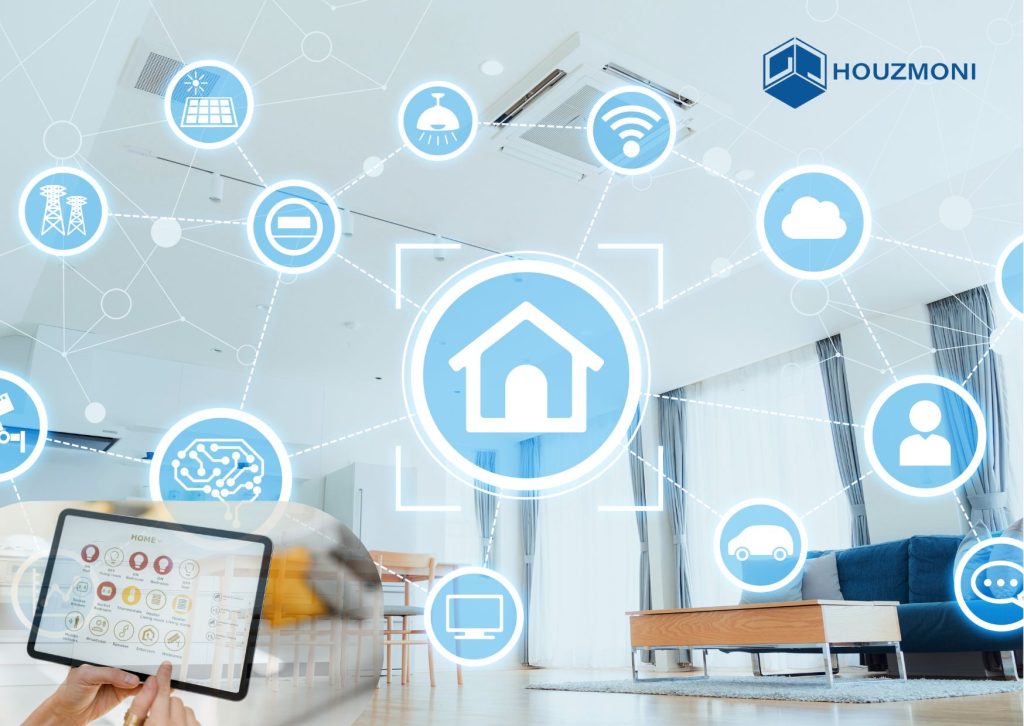
Smart Home Technology: The Future of Living in Malaysia
Smart home technology has rapidly evolved from a futuristic concept to an integral part of everyday life for many Malaysians. With advancements in the Internet of Things (IoT), artificial intelligence (AI), and automation, smart homes are becoming increasingly accessible, affordable, and desirable. In 2024, smart home technology is not only about convenience and luxury; it’s a necessity for enhancing efficiency, security, and sustainability in homes across Malaysia.
As we move into an era where digital transformation reshapes almost every aspect of life, smart home technology promises to revolutionize how we interact with our living spaces. From controlling appliances via voice commands to ensuring energy conservation through advanced home automation, smart homes are at the forefront of modern living. But what does the future of smart homes look like in Malaysia, and how are homeowners incorporating this technology into their daily lives?
The Rise of Smart Homes in Malaysia
Malaysia is experiencing rapid urbanization, and with this comes an increasing demand for modern, high-tech homes. Cities like Kuala Lumpur, Penang, and Johor Bahru are seeing a surge in smart home adoption, as homeowners embrace the ease and efficiency that comes with automation and connected devices.
According to Gartner, a leading global research and advisory company, “By 2025, the number of IoT devices in smart homes will exceed 30 billion globally, making connected homes a central aspect of the future of urban living.” Malaysia, with its young, tech-savvy population, is primed to embrace these changes. The Malaysian government’s push for sustainability, energy conservation, and green technologies also aligns well with the adoption of smart home solutions.
Smart home technology enables homeowners to control various aspects of their homes remotely, often through smartphones or voice assistants like Google Assistant, Amazon Alexa, or Apple’s Siri. Everything from lighting and air conditioning to security and kitchen appliances can be managed seamlessly, making life more convenient, safe, and energy-efficient.
Key Components of a Smart Home in Malaysia
To understand the full scope of smart home technology, it’s essential to look at the key components that make a home “smart.” Below are some of the most common and sought-after smart devices that are changing the way Malaysians live.
1. Smart Lighting
One of the easiest and most affordable ways to start building a smart home is through smart lighting. Smart bulbs, such as those from Philips Hue or Xiaomi, can be controlled via mobile apps or voice commands. They offer features like dimming, color changing, and even scheduling, enabling homeowners to create the perfect lighting ambiance for different occasions.
“Smart lighting is one of the most popular entry points for Malaysians into home automation. Not only does it provide convenience, but it also allows users to save energy by controlling their lights when they are not needed,” says Andrew Tan, a smart home consultant at SmartLiving Solutions, based in Kuala Lumpur.
2. Smart Thermostats and Air Conditioning
Malaysia’s tropical climate means that air conditioning is a constant necessity. However, running air conditioners can significantly increase energy bills. This is where smart thermostats and air conditioners come into play. Brands like Daikin and Panasonic offer smart air conditioning units that can be controlled via mobile apps. These devices can learn the homeowner’s habits and optimize energy usage by adjusting temperatures automatically.
Smart thermostats also contribute to energy conservation, which is becoming a critical concern in Malaysia as electricity costs rise. According to a 2023 report by the Malaysian Energy Commission, smart energy management systems could reduce household energy consumption by up to 20%.
3. Smart Security Systems
Security is another major consideration for homeowners, particularly in urban areas where break-ins and theft are more common. Smart security systems include video doorbells, motion sensors, and smart locks. The Ring Video Doorbell, Nest Cam, and August Smart Lock are among the top choices for Malaysians looking to enhance the security of their homes.
“Smart security is becoming a standard for many homeowners,” says Lee Han Wei, a tech industry expert. “With features like real-time alerts, remote access, and even facial recognition, these systems provide peace of mind, knowing that you can monitor your home from anywhere in the world.”
These systems can be integrated with other smart devices in the home, such as lighting, to activate lights when motion is detected, or with smart speakers to issue commands remotely.
4. Voice Assistants and Home Automation
Voice assistants like Google Assistant, Amazon Alexa, and Apple’s Siri are rapidly becoming the central hub of smart homes. By simply speaking commands, homeowners can control lights, air conditioning, music, and even order groceries. Voice assistants integrate seamlessly with other smart devices, allowing for a truly connected home.
One of the advantages of home automation is that it offers convenience and saves time. For instance, you can set up routines that automate specific tasks. “Alexa, turn off all the lights” or “Google, lock the doors”—these voice commands can make managing household tasks quicker and more efficient.
Home automation is particularly beneficial for working professionals who need to balance home life with busy schedules. By setting routines and automating tasks, they can ensure that their homes are always ready for them when they return.
5. Smart Appliances
Smart appliances, such as refrigerators, washing machines, and ovens, are increasingly becoming part of the smart home ecosystem. Samsung, LG, and Bosch offer refrigerators that notify homeowners when food is about to expire or when the door is left open. Smart washing machines and dishwashers can also be programmed remotely to operate during off-peak hours, saving on electricity bills.
“With the growth of smart appliances, we are seeing an overall shift in the way we interact with household chores,” says Dr. Rina Tan, a smart technology specialist. “These devices not only provide ease and convenience, but they also help homeowners optimize their home’s energy usage, making it a win-win for both the user and the environment.”
6. Smart Water Management Systems
Water conservation is becoming increasingly important in Malaysia, especially with the country’s periodic water shortages. Smart water management systems can monitor water usage, detect leaks, and even suggest ways to save water.
Brands like Rachio and Phyn offer smart irrigation systems that help homeowners conserve water by adjusting the watering schedule based on local weather conditions. “Smart water systems are becoming more popular, especially with concerns over water shortages in the country. These devices help manage resources more efficiently, which is crucial for sustainable living,” explains Isaac Wong, an environmental engineer based in Kuala Lumpur.
Benefits of Smart Home Technology in Malaysia
While the initial investment in smart home technology might seem steep, the long-term benefits far outweigh the costs. Some of the key benefits include:
1. Energy Efficiency and Cost Savings
Smart home devices, especially smart thermostats and lighting systems, help reduce energy consumption by ensuring that devices are only active when needed. This can lead to significant savings on electricity bills, which is especially important in a country like Malaysia, where energy costs have been steadily rising.
2. Convenience and Comfort
Smart home technology adds a layer of convenience that allows homeowners to manage their homes with ease. From adjusting temperatures remotely to programming appliances to turn on and off at specific times, smart devices save time and increase comfort.
3. Improved Security
Smart security systems, including cameras, doorbells, and locks, enhance the security of the home. Homeowners can monitor their property remotely and receive real-time alerts in the event of suspicious activity, providing peace of mind whether they are at home or abroad.
4. Increased Property Value
Homes equipped with smart technologies are seen as more modern and desirable, which can increase their market value. According to Knight Frank Malaysia, properties with integrated smart home solutions are often valued higher than comparable homes without such features.
5. Sustainability
Smart homes contribute to a more sustainable future by helping reduce energy consumption and promoting water conservation. These eco-friendly solutions align with Malaysia’s increasing focus on sustainability and green living.
Challenges and the Future of Smart Homes in Malaysia
Despite the numerous advantages, smart home technology in Malaysia faces some challenges. The high initial costs of installation and the lack of standardization in the industry can be barriers to adoption. Furthermore, there is a need for more education and awareness about how smart devices can integrate seamlessly into everyday life.
However, as the technology becomes more affordable and accessible, and as more local developers incorporate smart home features into new buildings, these challenges will likely diminish. “The future of smart homes in Malaysia looks promising. As more consumers realize the benefits of home automation, we expect to see widespread adoption across all socioeconomic segments,” says Tina Loh, a market analyst at FutureTech Research.
Conclusion
Smart home technology is more than just a passing trend; it’s the future of living. As Malaysia moves into 2024, smart homes are set to become more integrated into the fabric of everyday life, offering homeowners increased convenience, energy efficiency, security, and sustainability. With the help of voice assistants, smart appliances, and cutting-edge automation systems, the home of the future is already here.
As the technology becomes more accessible and affordable, Malaysians are embracing the promise of smarter, more connected living spaces. Whether it’s through automating routine tasks, enhancing security, or optimizing energy use, smart homes are defining the next generation of homes in Malaysia. In the years to come, the adoption of smart home technology will only continue to accelerate, shaping the way Malaysians live, work, and interact with their homes.








